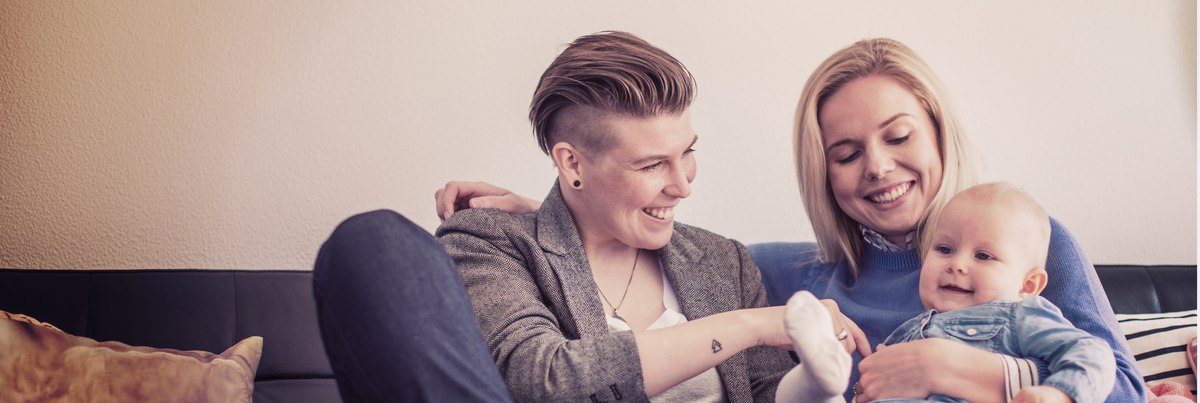Adoption by gay and lesbian couples is increasing. However, these soon-to-be-families continue to face prejudice and bureaucratic hurdles. According to a study conducted by the Urban Institute in 2007, 3% of foster children and 4% of adopted children live with lesbian and gay parents. In fact, the same study found that approximately two million more homosexual couples are either in the process of or considering adoption.

Another study conducted by Family Equality found that gay and lesbian couples are six times more likely to adopt a child than heterosexual couples. Gay and lesbian couples, despite prejudicial and bureaucratic obstacles, are poised to be an important bridge for children who need a loving and supportive family.
Gay Adoption: Where is it Legal?
In 2015 in the Obergefell v. Hodges decision, the U.S. Supreme Court found that marriage is a fundamental right guaranteed to same-sex couples pursuant to the Equal Protection and Due Process clauses of the Constitution. Following that decision, a bevy of state laws that restricted marriage and similar rights to heterosexual couples were overturned – including laws related to adoption. Today, all states allow adoption and fostering by same-sex couples. However, legal protections and practice enforcement are two different beasts, and not all couples are treated the same in all states or counties.
International Adoption
While adoption by homosexual couples within the United States is legal in all states, the same rights do not extend internationally. Many counties ban the adoption of children by single and gay men or limit adoptions to heterosexual women.
Navigating Adoption Agencies
While all state agencies are required to place children with any family that is fit to raise the child, not all state agencies treat homosexual couples with respect as heterosexual ones. Consulting with an LGBT family-friendly law firm can help steer a same-sex couple away from unfriendly agencies. The stress and cost of adopting a child are already immense without the added pressure from prejudice.
In general, gay and lesbian families can avoid unfriendly adoption agencies with a few tricks. First, potential parents should examine the agency’s website. Does it have pictures of hetero- and homosexual couples? Does its mission statement or policies include an express anti-discrimination statement related to sexual orientation or identity?
Adoption and Divorce
When an adoption is finalized, one of two things will have occurred: either one or both adults are the child’s legal parent. If both adults jointly adopted the child, then they both are the legal parents of the child. If a divorce occurs, the couple will need to deal with child custody issues through their respective family court system.
If only one of the adults adopted the child, only that adult is the legal parent. The other parent will have little or no grounds to contest physical and legal custody over the child or even negotiate for visitation rights. In some states, a divorced same-sex partner can seek visitation or custodial rights to establish that he or she intended to raise the child jointly with the other parent. However, this a difficult legal argument.









